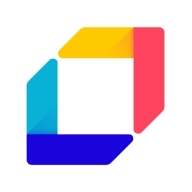

FortiCNAPP and Trivy are key players in the cybersecurity space. FortiCNAPP has the upper hand with advanced machine learning anomaly detection and compliance reporting, while Trivy integrates seamlessly with CI/CD pipelines and excels in vulnerability scanning.
Features: FortiCNAPP offers machine learning anomaly detection, compliance reports, and continuous monitoring. Trivy features seamless integration with CI/CD pipelines, customizable security scanning, and its open-source nature allows extensive configuration scanning.
Room for Improvement: FortiCNAPP could enhance IAM security control, visibility, and platform integration. It also faces scalability challenges. Trivy would benefit from adding PDF reporting, improving its user interface, and reducing false positives while enhancing report customization.
Ease of Deployment and Customer Service: FortiCNAPP is widely used in cloud environments with responsive customer service via Slack and email. Trivy is deployed in diverse environments with satisfactory initial support, although it lacks long-term proactive engagement compared to FortiCNAPP.
Pricing and ROI: FortiCNAPP requires a significant annual fee but provides ROI by reducing manual monitoring tasks and leveraging integration capabilities. Trivy, free and open-source, offers cost-effective, necessary functionality focusing on integration capabilities, although ROI manifests differently from FortiCNAPP.
| Product | Market Share (%) |
|---|---|
| Trivy | 4.9% |
| FortiCNAPP | 2.7% |
| Other | 92.4% |

| Company Size | Count |
|---|---|
| Small Business | 4 |
| Midsize Enterprise | 4 |
| Large Enterprise | 4 |
| Company Size | Count |
|---|---|
| Small Business | 3 |
| Midsize Enterprise | 1 |
| Large Enterprise | 9 |
FortiCNAPP is a comprehensive cloud security platform focusing on ease of use and machine learning-driven anomaly detection. It offers robust compliance reporting, seamless integration, and continuous monitoring, making it an essential tool for organizations managing multi-cloud environments and security configurations.
FortiCNAPP provides significant capabilities in cloud security, compliance, and vulnerability management. Designed for organizations needing efficient monitoring, it enables detection of anomalies across cloud infrastructures while optimizing security posture and ensuring compliance with environments like AWS and GCP. The platform offers in-depth insights through scanning of IAC scripts, host systems, and cloud configurations. Recognized for effectively managing security posture, it safeguards Kubernetes and container environments, providing comprehensive threat detection and response. However, some areas like visibility, IAM security controls, and compliance metrics need improvement. Users face challenges with alert setup and lack intuitive design, alongside issues like FedRAMP authorization absence and complexity in the data model.
What are the key features of FortiCNAPP?FortiCNAPP is implemented extensively by industries needing reliable cloud security, such as finance, healthcare, and technology sectors. It supports organizations in enhancing cloud infrastructure protection, ensuring compliance, and strengthening vulnerability management. By integrating with platforms like AWS and GCP, businesses can optimize security posture in their cloud deployments.
Trivy offers comprehensive scanning for files, images, repositories, and infrastructure. It's open-source and integrates with CI/CD for vulnerability detection and security enhancement.
Trivy scans vulnerabilities in code, Docker images, containers, and infrastructure. It integrates seamlessly into DevOps pipelines, ensuring security in dependency management and open source vulnerabilities. This tool, lightweight and open-source, provides user-friendly reports and supports continuous vulnerability database updates, fostering ease of use across operating systems. Users benefit from its scanning capabilities, covering Kubernetes, AWS credentials, and GCP service accounts, effectively identifying vulnerabilities and misconfigurations.
What are Trivy's key features?In industries like technology and finance, Trivy is used extensively to secure applications, perform compliance checks, and offer security metrics visualization. It addresses microservices, container systems, and Kubernetes clusters security requirements, supporting DevOps teams and enhancing codebase analysis precision.
We monitor all Container Security reviews to prevent fraudulent reviews and keep review quality high. We do not post reviews by company employees or direct competitors. We validate each review for authenticity via cross-reference with LinkedIn, and personal follow-up with the reviewer when necessary.